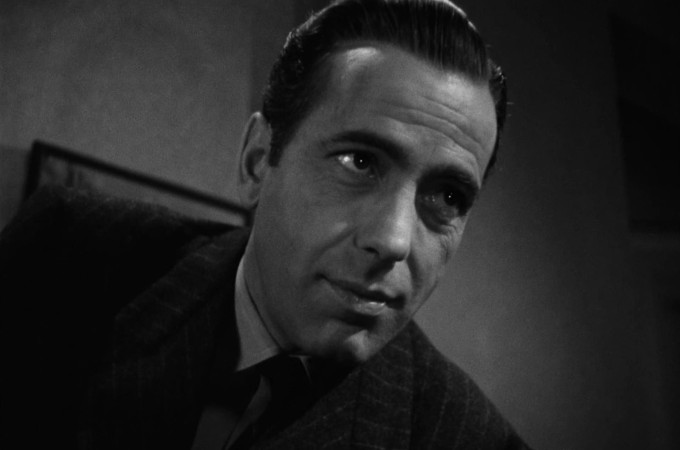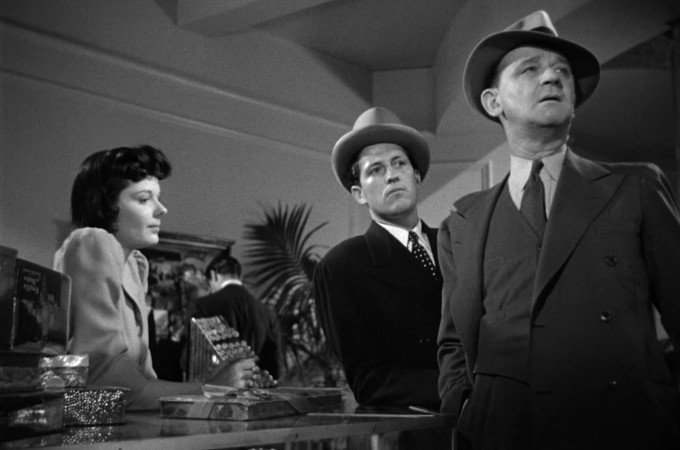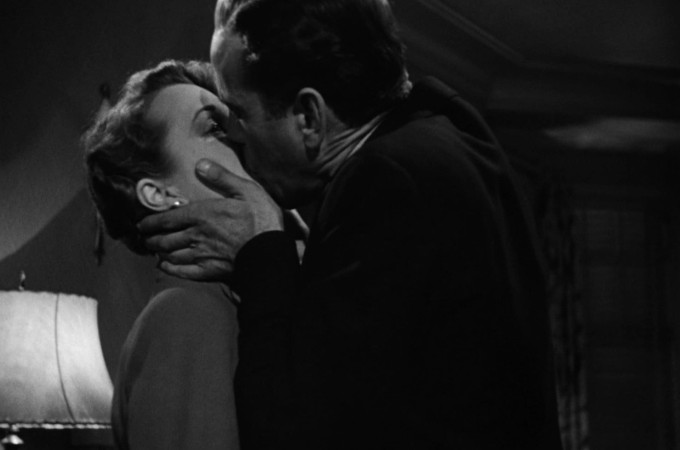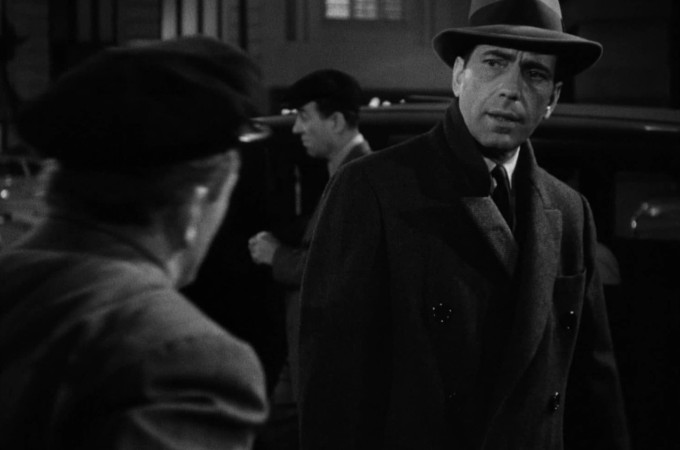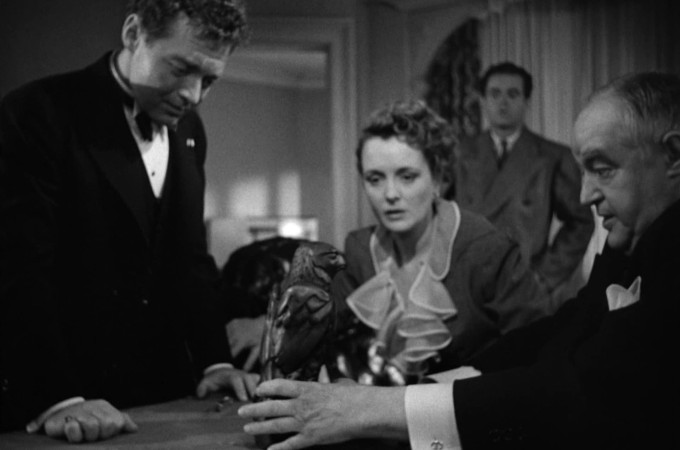W Ameryce doby wielkiego kryzysu normy moralne uległy rozchwianiu. Sam Spade, bohater Sokoła maltańskiego (powieści Hammetta i ekranizacji Johna Hustona), jest produktem swoich czasów. Kierowany szlachetnymi intencjami, chce prowadzić własną wojnę ze złem, które czasem definiuje bardzo subiektywnie. Ale musi tak być, skoro detektyw nie może liczyć na wsparcie ze strony stróżów prawa. Sam (wspaniały Humphrey Bogart) wyznacza więc jego granice, opierając się na osobistym poczuciu przyzwoitości. Można mu zarzucić, że bywa cyniczny i bezwzględny, ale dostosowuje się przecież do reguł panujących w jego świecie. A tutaj wszystko jest zmienne i skąpane w mroku (także dosłownie) nieczystych instynktów. Wisząca w powietrzu gęsta atmosfera, samotny detektyw i obowiązkowa femme fatale złożyły się na trzy filary nowej formuły filmu kryminalnego – kina noir. Sokół maltański stał się w jego historii kamieniem milowym.
Piotr Kotowski
In the 1930s, Dashiell Hammett and Raymond Chandler reinvented the crime novel genre. Their books, which immediately proved successful, replaced the figure of the all-knowing detective unravelling criminal charades with an individual who can face crime ruthlessly and without remorse. In Great Depression-era America, moral codes were crumbling. Sam Spade, the protagonist of The Maltese Falcon (Hammett’s novel and John Huston’s film adaptation), is certainly a product of his times. Driven by noble intentions, he embarks on his own war against evil, which he sometimes defines rather subjectively. With little or no help from the law, Sam (the magnificent Humphrey Bogart) sets his own standards, relying on a personal sense of decency. Even if at times he appears cynical and merciless, Sam is, after all, adapting to the rules of the world, in which everything is volatile and shrouded in darkness (both figuratively and literally) of immoral instincts. The dense atmosphere hanging in the air, the solitary detective and the indispensable femme fatale together make up the three pillars of a brand-new formula – cinema noir – and make The Maltese Falcon a major turning point in cinema history.
Piotr Kotowski
John Huston (1906–1987) to jeden z najwybitniejszych reżyserów klasycznego Hollywood, mistrz narracji i kreślenia wielowymiarowych postaci. Jego debiut Sokół maltański (1941) ukształtował film noir, a Skarb Sierra Madre (1948) przyniósł mu trzy Oscary, w tym za rolę drugoplanową dla Waltera Hustona, ojca reżysera. John Huston tworzył z równą swobodą epickie dramaty (Człowiek, który chciał być królem), adaptacje literatury (Moby Dick) i dramaty egzystencjalne (Noc iguany). Był artystą bezkompromisowym, który nieustannie poszerzał granice kina, pozostawiając po sobie bogaty, inspirujący dorobek.
John Huston (1906–1987) was one of the greatest directors of classic Hollywood, a master storyteller known for crafting complex, multi-dimensional characters. His debut, The Maltese Falcon (1941), shaped the film noir genre, while The Treasure of the Sierra Madre (1948) earned him three Academy Awards including one for his father, Walter Huston, as Best Supporting Actor. He effortlessly moved between epic dramas (The Man Who Would Be King), literary adaptations (Moby Dick), and existential films (The Night of the Iguana). A fearless artist, he continuously pushed the boundaries of cinema, leaving behind a rich and inspiring legacy.
